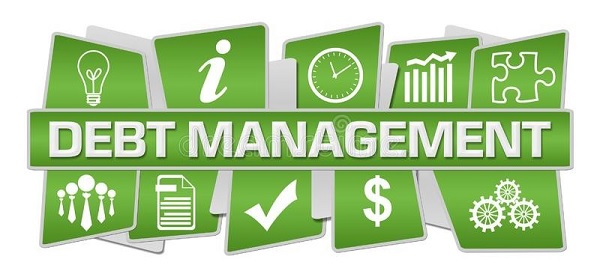
Effective debt management is a crucial aspect of maintaining financial stability and achieving long-term financial goals. When faced with debts, it's essential to approach the situation strategically to reduce financial stress and pave the way for a more secure financial future.
Start by gaining a comprehensive understanding of your debt landscape. List all outstanding debts, noting their respective interest rates, outstanding balances, and monthly payment obligations. This clear overview will serve as the foundation for your debt management strategy.
Prioritize your debts based on interest rates. High-interest debts should be given top priority, as they can accumulate rapidly, making them more challenging to repay over time. Targeting these high-interest debts first can save you money in the long run.
Developing a realistic budget is key to effective debt management. Outline your sources of income, essential expenses, and discretionary spending. Allocate a portion of your budget specifically for debt repayment, ensuring that you consistently contribute to reducing your outstanding balances.
Establishing an emergency fund is another critical component of debt management. This financial safety net can prevent you from resorting to credit cards or loans to cover unexpected expenses, providing a buffer against unforeseen circumstances.
Consider negotiating with creditors to secure lower interest rates. Many creditors are open to discussions, especially if it means ensuring consistent and timely payments. Lower interest rates can make debt repayment more manageable and accelerate the process.
Consolidating high-interest debts is an option worth exploring. By combining multiple debts into a single, lower-interest loan, you simplify the repayment process and potentially save money on interest payments.
Automating debt payments helps ensure that you never miss a due date. Timely payments contribute to a positive credit history, which is crucial for your overall financial health.
Examine your budget closely to identify areas where you can cut unnecessary expenses. Redirecting these savings toward debt repayment accelerates your progress and brings you closer to financial freedom.
Increasing your income, whether through a side hustle, freelancing, or seeking higher-paying job opportunities, can provide additional funds to expedite debt repayment.
Seeking professional advice, such as consulting a financial advisor or credit counseling agency, can offer personalized guidance. These professionals can help you create a tailored debt management plan that aligns with your unique financial situation.
Avoid taking on new debt while repaying existing obligations. Consider leaving credit cards at home or cutting them up to resist the temptation of impulse spending.
Regularly reviewing your credit report is crucial for monitoring progress and ensuring accuracy. Report any discrepancies promptly and celebrate small victories as you pay off individual debts.
In situations where debt becomes overwhelming, legal options such as debt settlement, bankruptcy, or consumer proposals may be considered. However, these should be approached as a last resort after seeking professional advice.
Remember, effective debt management is a gradual process that requires commitment and discipline. By implementing these strategies and making informed financial decisions, you can work towards reducing and eventually eliminating your debt, setting the stage for a more financially secure future.